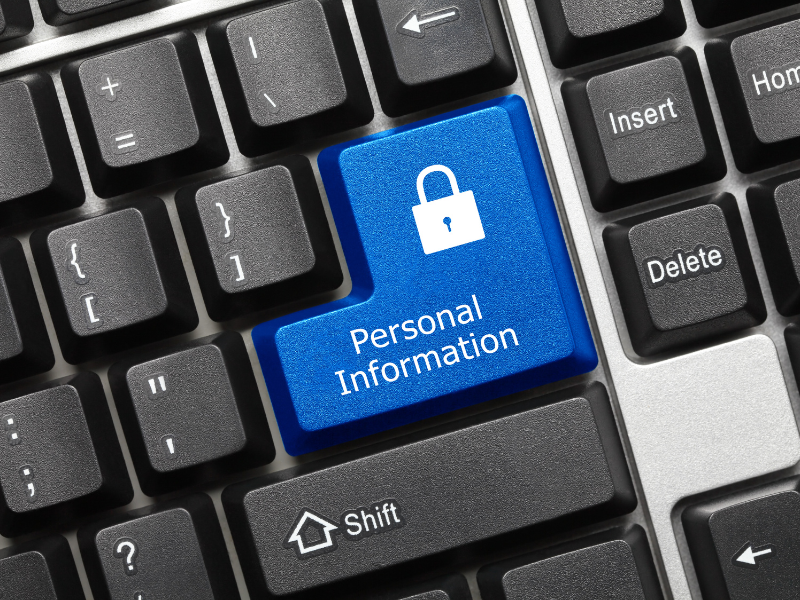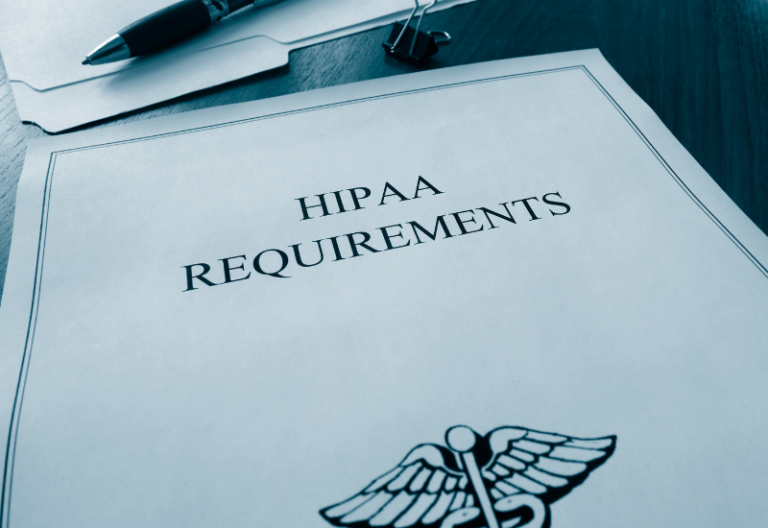As a business, you are responsible for keeping and safeguarding your client’s personally identifiable information. After all, it’s valuable data that can put your customers and business at risk. It can even lead to costly lawsuits simply because you failed to keep the PII safe from unauthorized access or accidental disclosure.
So what exactly is PII or personally identifiable information, and why must you protect it? How can you mitigate the risks of mishandling PII and prevent breaches?
This post will walk you through everything you need to know, including its meaning and importance.
Table of Contents
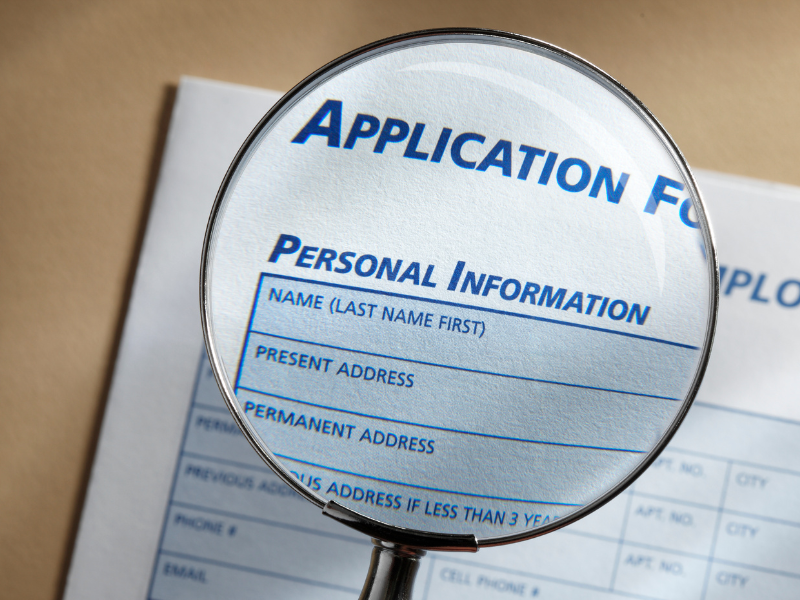
What Is Personally Identifiable Information?
Personally identifiable information, or PII, is any data that can be used to identify a particular person. It’s sensitive information that malicious people can use to steal someone’s identity or commit fraud. Take a client’s email, for example. Cybercriminals could exploit this particular piece of data to send phishing emails or spam messages.
Thus, safeguarding personally identifiable data is a must to protect your business from growing threats.
What Classifies as PII?
Not every piece of information associated with an individual is considered PII. According to the NIST guidelines, it is any data that includes a person’s name, address, email address, phone number, or any indirect identification like race or gender:
Other information that would be considered PII includes:
- Date of birth
- Social security number
- Driver’s license number
- Passport number
- Bank account information
- Credit card number
- IP address
Given the above examples, if the information lacks identifying details such as average age or income levels, it won’t classify as personally identifiable information.
Who Is Responsible for Protecting PII?
The responsibility to safeguard PII usually falls on the individual, business, or organization that handles it. However, it depends on the situation, agreement, or context. There will be instances where the primary burden falls onto the individual, such as when they provide their emails to an app or website.
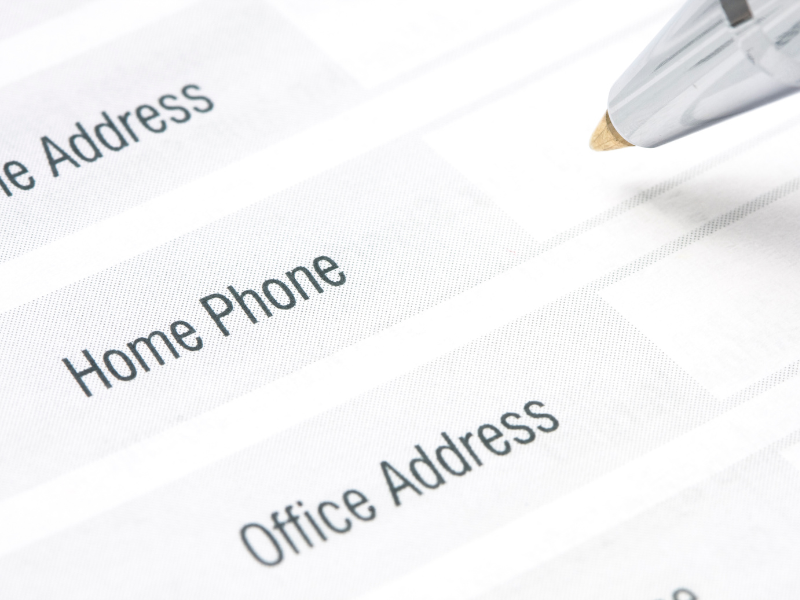
Importance of Safeguarding PII
Implementing adequate security measures to protect personally identifiable data can minimize risks, especially those related to theft, fraud, and breaches. It also helps maintain privacy, a vital component for building customer trust and loyalty.
There’s also the matter of compliance. By safeguarding PII, you can adhere to federal and industry regulations like HIPAA, GLBA, and the Federal Trade Commission Act (FTC Act).
Here are some other reasons why implementing security measures to protect PII is important:
- Prevents identity theft: Identity theft should be taken seriously, as it can have damaging consequences for businesses and individuals alike. Protecting personally identifiable information can block unauthorized users from accessing your data.
- Preserves reputation: Neglect that leads to breaches or improper PII handling can permanently damage your business’ reputation. A single breach could result in a loss of customer trust, which can take years to regain.
- Ethical considerations: Securing PII is an ethical way for any business or company to respect a client’s rights. Failing to do so violates the fundamental principles of security and privacy.
- Mitigation of losses: Data breaches can lead to damaging financial losses. Your business will have to pay hefty fines and may even have to cease operating, which can result in lost productivity and revenue.
PII Mishandling Risks and Consequences
Failing to protect personally identifiable information could lead to severe consequences. Below are some of the risks and effects of PII mishandling:
- Compromised accounts: When unauthorized users gain access to personally identifiable information, they can use it to exploit compromised accounts. Identity thieves can easily commit fraudulent activities, such as phishing and spamming.
- Financial fraud: Breaches in PII may result in financial fraud, such as when cybercriminals lure innocent clients into investing in nonexistent stocks or bonds.
- Identity theft: Using the stolen personally identifiable data, online thieves may pose as another person to cause further harm. They may even commit tax fraud by filing a false tax return.
- Reputational damages: PII mishandling can affect your business or organization’s ability to attract customers and investors. Thus, addressing these issues quickly and mitigating any potential damages is crucial.
- Legal action: Your business could face legal action due to your failure to protect personally identifiable information. You may also be facing possible legal penalties.
- Financial losses: There will be a loss in revenue, and you will have to pay for damages. On top of this, you will also have to shoulder the costly consequences of failing to comply with regulations concerning data privacy.
- Compliance violations: You will face penalties due to non-compliance with federal and industry regulations. In worst-case scenarios, you may be subject to imprisonment, especially in cases of
severe violations.
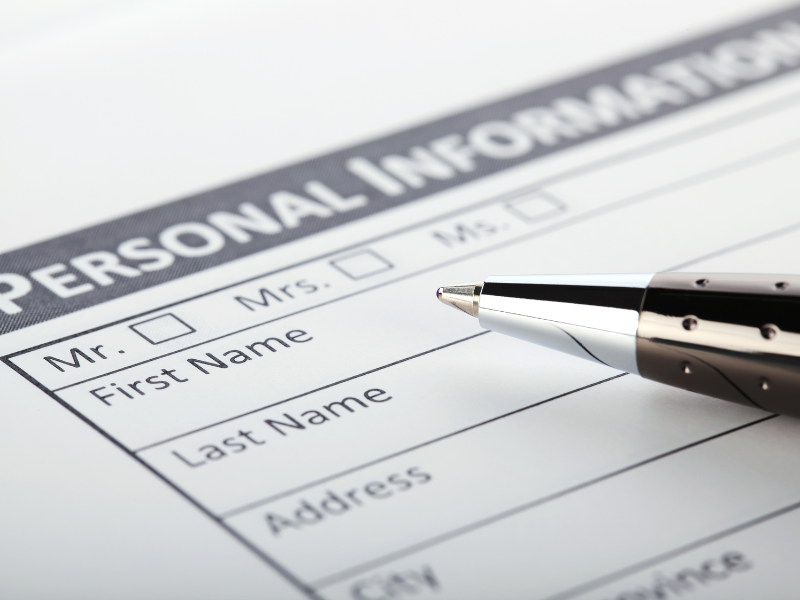
Best Practices When Handling Personally Identifiable Data
When it comes to handling personally identifiable information, there are several practices you can follow to ensure the privacy and security of sensitive data. Some of these are as follows:
Only collect the data you need
Limit the amount of personally identifiable information you collect to the minimum. Don’t ask for unnecessary details that aren’t related to the transaction. For example, if you need the customer’s email for newsletter signup, only collect that and don’t ask for the home address and phone number.
Store PII in a secure location
Storing personally identifiable data in secure storage is crucial. If you are storing electronic copies, encrypt them with the highest level of encryption technology. Implement additional security measures such as password protection and two-factor authentication. You should also have a backup system in place.
Limit user access
Only allow authorized personnel to gain access to PII. This way, you can prevent the unwanted viewing and transfer of sensitive data. You can also apply user ID verification to verify users further. In doing so, only those who can validate their identities will be allowed to have access.
Regularly monitor access
Perform regular auditing and monitoring of user activities. Even after implementing access controls, you must still check for suspicious activities. It also helps to keep your security system up-to-date to prevent any vulnerabilities.
Use secure transmission
When sharing personally identifiable information, only use secure transmission methods. Since malicious users can intercept data in transit, you must encrypt them properly. With encryption, only those with the key can view the data. Those attempting to decrypt them without the key will only see a jumbled mess of characters.
Implement a data retention policy
Your data retention policy should define how long your business or organization will store personally identifiable data. After this period, make sure to dispose of the information provided properly. Not only does this help minimize the risk of data breaches, but it can also help you save on storage costs.
Obtain explicit consent
Before collecting any PII, always obtain informed consent from users. They must clearly understand what information will be collected and how your business will use it. Avoid using complex words or jargon when asking for consent. Be as transparent as possible. Give users the option to opt-out whenever they want.
Take Active Steps to Protect Your Client’s Privacy
One step to protecting your client’s privacy is ensuring no unauthorized user can access their PII. This way, you will gain their trust, thereby increasing their confidence to patronize your business. It’s a win-win solution that will help your business grow and, at the same time, minimize your risks of facing hefty penalties and fines.



